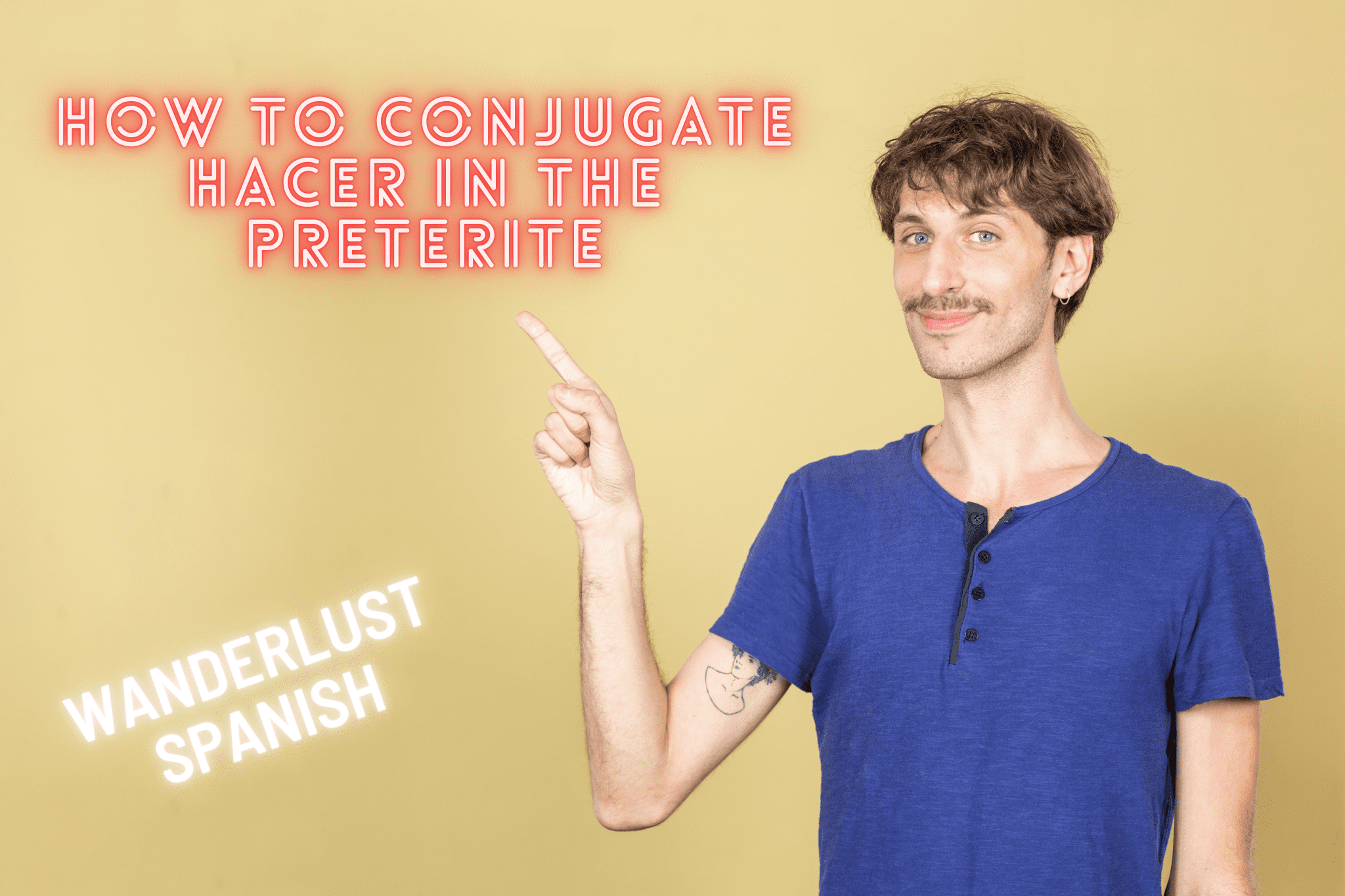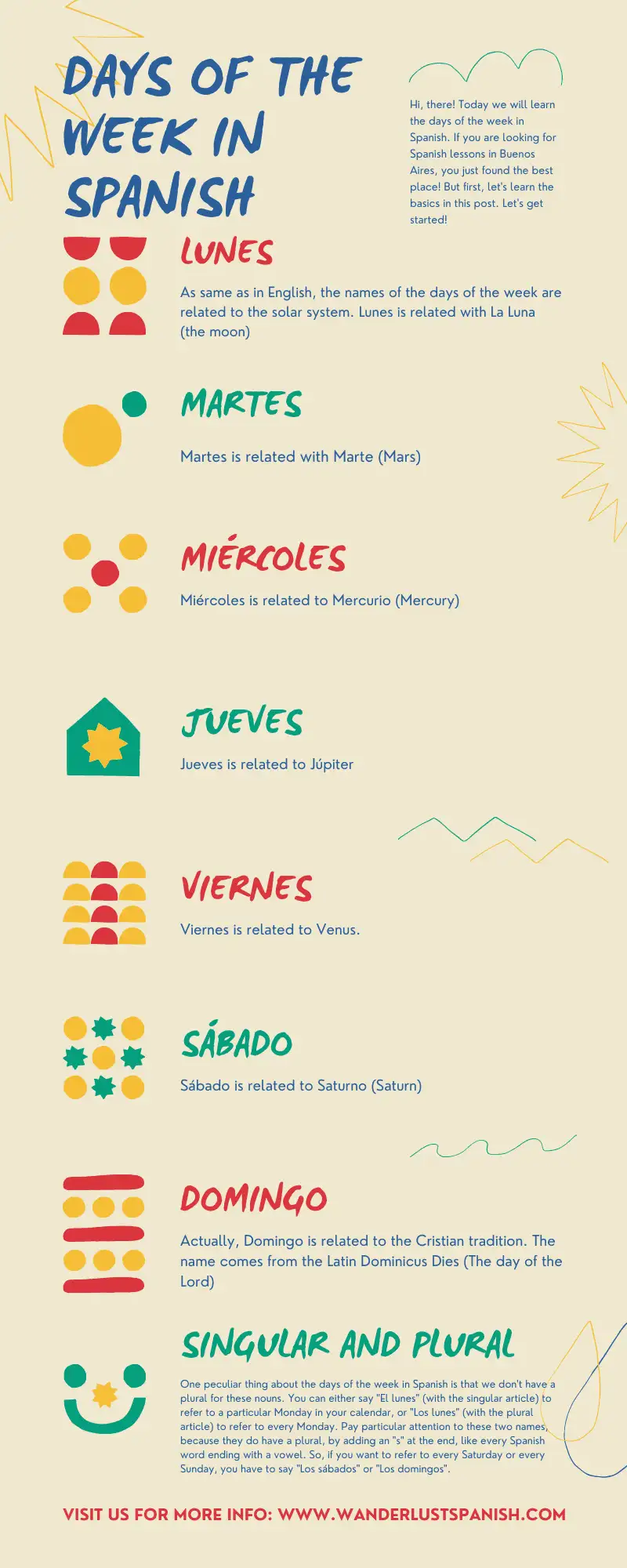Hello, there! Today we will learn How to conjugate Hacer in the preterite. Hacer means “to do” or “to make”. It’s one of the most used verbs in Spanish and it’s an irregular verb in almost every verbal tense. So, you will need this verb all the time! Let’s learn the conjugation of Hacer in the Preterite and also let’s see some examples of how to use it in sentences. Shall we start?

Conjugate Hacer in the Preterite
Contents
First things first. This is the conjugation of Hacer in Preterite Perfect Simple:
| Yo | hice |
| Tú (or vos) | hiciste |
| Él / Ella / Usted | hizo |
| Nosotros / Nosotras | hicimos |
| Ellos / Ellas / Ustedes | hicieron |
Now, let’s see some examples to see when to use Hacer:
- ¿Qué hiciste ayer?: What did you do yesterday?
- Ayer hice una torta para mi prima: Yesterday I bake a cake for my cousin (Note that we use “hacer una torta” to say “to bake a cake”)
- Él no hizo su cama ayer: He didn’t make his bed yesterday.
How to conjugate Hacer in the Preterite Imperfect
And now let’s conjugate Hacer in the Preterite Imperfect. In this case, hacer works as a regular verb, so it’s easier to remember:
| Yo | hacía |
| Tú (or vos) | hacías |
| Él / Ella / Usted | hacía |
| Nosotros / Nosotras | hacíamos |
| Ellos / Ellas / Ustedes | hacían |
Let’s go with the examples. Remember we use Preterit Imperfect to talk about habits, descriptions, and routines in the past:
- Cuando era niña, hacía gimnasia en la escuela: When I was a child, I did gymnastics at school.
- Ellos hacían todo en la casa: lavar, planchar, cocinar: They did everything in the house: washing, ironing, cooking.
- Tú no hacías los pagos, yo era el encargado: You didn’t make the payments, I was the one in charge.
Hacer in past participle and gerund
And what about the past participle and the gerund (the ‘ing’ word) of hacer? Well, you will need these two to form the progressive tenses and the compound verbs. Let’s see them:
| Past Participle (Participio) | Gerund (Gerundio) |
| Hecho | Haciendo |
When to use the past participle and the gerund? Well, you will need the first one in all the Compound Verbs, which means, the verbs formed with the auxiliary verb Haber (conjugated) + the past participle. For example:
In the Indicative Mood:
- Pretérito Perfecto Compuesto (verb Haber conjugated in Present + past participle): Esta semana has hecho muchos avances en la materia (This week you have made many advances in the matter).
- Pretérito Pluscuamperfecto (verb Haber conjugated in Preterit Imperfect + past participle): Cuando llegué a la casa, ellos ya habían hecho todo el trabajo (When I got home, they had already done all the work).
In the Subjuntivo Mood:
- Pretérito Perfecto de Subjuntivo (verb Haber conjugated in Present Subjunctive + past participle): Espero que hayas hecho la tarea (I hope you did the homework).
- Pretérito Pluscuamperfecto de Subjuntivo (verb Haber conjugated in Imperfect Subjunctive + past participle): Si hubiera hecho la tarea, ahora entendería todo (If I have done my homework, I would now understand everything).
Hacer Gerund
And the gerund? The gerund is used when we want to express that the action is happening, that is in progress. It can be used with the verb estar or to express simultaneity with another verb. For example:
- Ahora estoy cocinando, no puedo atenderte: I’m cooking now, I can’t help you.
- Leyó el libro, subrayando lo más importante: He read the book, underlining the most important.
Okay, guys, that was all for today! Let us know if you have any questions, and remember you can try a free class, just contact us here. See you in the next post! Hasta la próxima!









